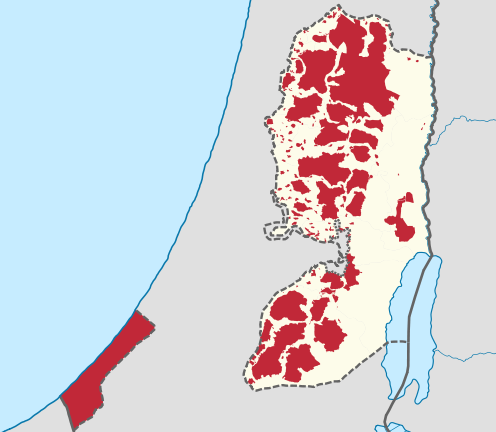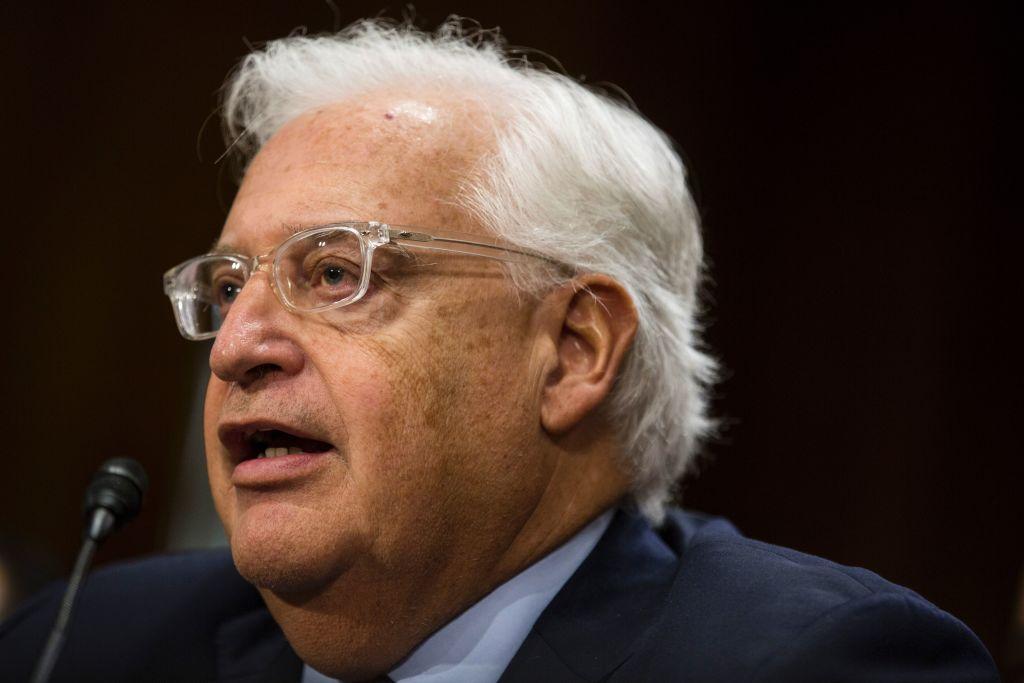Israel ‘only occupies two per cent’ of West Bank, US ambassador claims
David Friedman quickly slapped down by Washington for comments contradicting decades of US Middle East policy

Your support helps us to tell the story
From reproductive rights to climate change to Big Tech, The Independent is on the ground when the story is developing. Whether it's investigating the financials of Elon Musk's pro-Trump PAC or producing our latest documentary, 'The A Word', which shines a light on the American women fighting for reproductive rights, we know how important it is to parse out the facts from the messaging.
At such a critical moment in US history, we need reporters on the ground. Your donation allows us to keep sending journalists to speak to both sides of the story.
The Independent is trusted by Americans across the entire political spectrum. And unlike many other quality news outlets, we choose not to lock Americans out of our reporting and analysis with paywalls. We believe quality journalism should be available to everyone, paid for by those who can afford it.
Your support makes all the difference.The US’ ambassador to Israel has been admonished by Washington DC for giving an interview in which he suggested that only two per cent of land in the West Bank is occupied by Israel.
David Friedman, a former bankruptcy lawyer who took up his post in Donald Trump’s administration in May, sad in an interview broadcast on Thursday with news channel Israeli Walla that he believes “the settlements are part of Israel.”
The comments contradict the view of most of the international community, including the US, who see all Israeli settlement building over the agreed 1967 Six Day War borders as illegal and a major obstacle to a lasting Israeli-Palestinian peace deal.

“I think that was always the expectation when [UN] resolution 242 was adopted in 1967,” he said.
“The idea was that Israel would be entitled to secure borders,” he added. “The existing borders, the 1967 borders, were viewed by everybody as not secure, so Israel would retain a meaningful portion of the West Bank, and it would return that which it didn’t need for peace and security.
“I think that’s exactly what Israel has done. I mean, they’re only occupying two per cent of the West Bank. There is important nationalistic, historical [and] religious significance to those settlements, and I think the settlers view themselves as Israelis and Israel views the settlers as Israelis.”
Mr Friedman’s statements - which have been condemned by Palestinian leaders - came the day after several prominent Israeli politicians including Prime Minister Benjamin Netanyahu took part in celebrations marking 50 years of settlement building on Palestinian land.
Aide to Palestinian Authority President Mahmoud Abbas Nabil Shaath responded on Twitter that that the US ambassador had displayed “absolute ignorance of facts of law and of the position of the United States.”
“[Friedman’s comments are] very bad news for the future of any American attempt to make peace in the Middle East,” Mr Shaath added.
The ‘two per cent’ figure is often used by Israeli officials to describe the amount of physical space taken up by settlement building in the West Bank. Palestinians, however, point out that Israel controls Area C - which makes up approximately 60 per cent of the entire area.
The White House quickly moved to distance itself from the remarks. Spokesperson Heather Nauert said on Thursday that Mr Friedman’s comments should “not be read as a shift in US policy.”
The intervention marks the second time since the ambassador took up his post that Washington has had to clarify the US’ policy in the Middle Eastern conflict.
Earlier this month, Mr Friedman referred to Israel’s “alleged occupation” of the West Bank while speaking to Israeli media - which Ms Nauert again had to say did not reflect the US’ view.
While Donald Trump is widely viewed in Israel and the wider Middle East as far more sympathetic to Israeli interests - including the contentious issue of settlement building - than his predecessor Barack Obama, he has also vowed to broker peace in the long-standing conflict.
Join our commenting forum
Join thought-provoking conversations, follow other Independent readers and see their replies
Comments